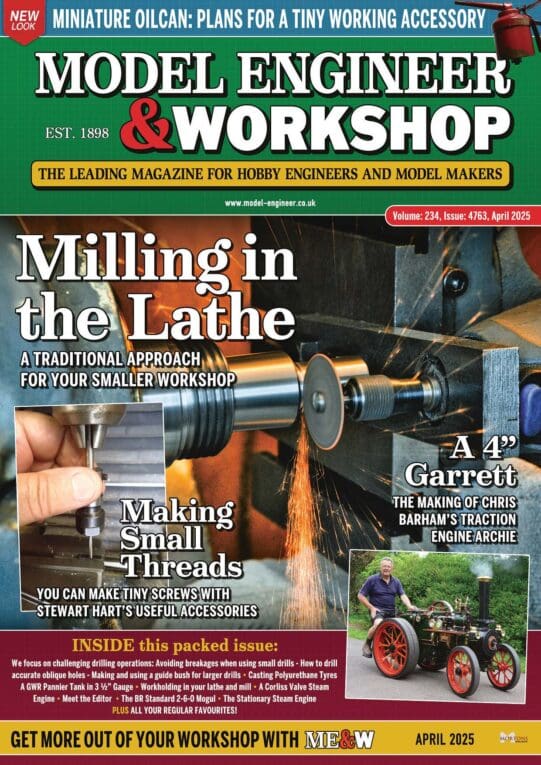Posted by SillyOldDuffer on 03/02/2017 12:56:22:
Posted by Sam Longley 1 on 03/02/2017 07:58:05:
Posted by John Stevenson on 02/02/2017 23:52:07:
I say non loyal as many of my neighbours were employed at Myfords. Decent guys to the letter but Myfords like a lot of engineering jobs of the time paid a pittance so their take on it was go to work, do as much as necessary, draw the wages and go home.
Why put yourself out when there was no reward
I can assure you that paying those employees more money would not have produced an ounce of extra output.
To do that you would have had to sack the lot clear them all out & start again
…
Looking at industrial history, the unenlightened greed of the early industrialists and many of their successors set the UK up for two centuries of piss-poor labour relations when what we needed was fair dealling and team work.
Whenever the workforce is exploited by low pay, tokens only valid in company shops, not providing heath cover or pensions, inflicting piecemeal rates, dangerous working conditions, and repeated breaches of trust, there will be a counter-movement. And exploited people have very long-memories.
When the counter-movement itself becomes corrupt, life gets very difficult. Mr Grabgrind (a Right-wing, ignorant, sociopath) will find it very difficult to negotiate sensibly with Comrade Napoleon (a left-wing psychotic pig only interested in power.) Mr Grabgrind won't invest if he can't rely on the workforce, and the workforce won't go the extra mile for Grabgrind because history proves he's exploitative.
Presumably Sam speaks from experience when he says "To do that you would have had to sack the lot clear them all out & start again". But that very much begs the question "who was responsible for recruiting these terrible people in the first place?" Perhaps they were taken on by someone untrained in recruitment, who wasn't offering much in the way of job security, training, or pay?
We are all guilty…
Dave
Typos, typos.
Edited By SillyOldDuffer on 03/02/2017 12:57:57
Edited By SillyOldDuffer on 03/02/2017 13:00:10
The first part of your post is perfectly correct. However, from my experience & friendship with Jack Dash of the docks — remember him? will demonstrate that whatever management did once they realised they had made serious mistakes they were never going to make things right. Making men stand in a field waiting to see if they had a job that day & hoping that they had bought the foreman enough drinks the night before otherwise they got sent home with no pay was no way to treat the workers. ( I lived & worked near Tilbury docks)
However, the phrase " never give a docker an even break" soon became evident when repeated attempts to raise wages, conditions & jobs for life just produced total greed from the workforce. Hardly surprising considering how they had been treated in the past.. I still remember watching the men meeting on the " docker's field" in Tilbury with the stewards on boxes calling the men to strike. Quite frightening to a young teenager.
So the solution- Felixtowe docks – Privately owned, a new setup & away from the history of the London, & to an extent Tilbury, docks.
Effectively the docks were cleared out, at great expense to the country as a result of disgustingly poor management, poor investment, poor treatment of workers & adverse union activity that spawned the likes of Jack Dash.
In a similar vein, inefficient companies eventually disappear ( well OK BT & co manage to survive but the exception proves the rule or so they say!!!!) & that is what happens & my comment, although harsh on the working man( just try going home to the wife to tell her you have no job & no prospects. ) is the reality. The whole lot gets cleared out & if the will is there it starts again with a new set up. Unfortunately the will is not always there.
Edited By Sam Longley 1 on 03/02/2017 13:31:31
Edited By Sam Longley 1 on 03/02/2017 13:32:25
Toby.





